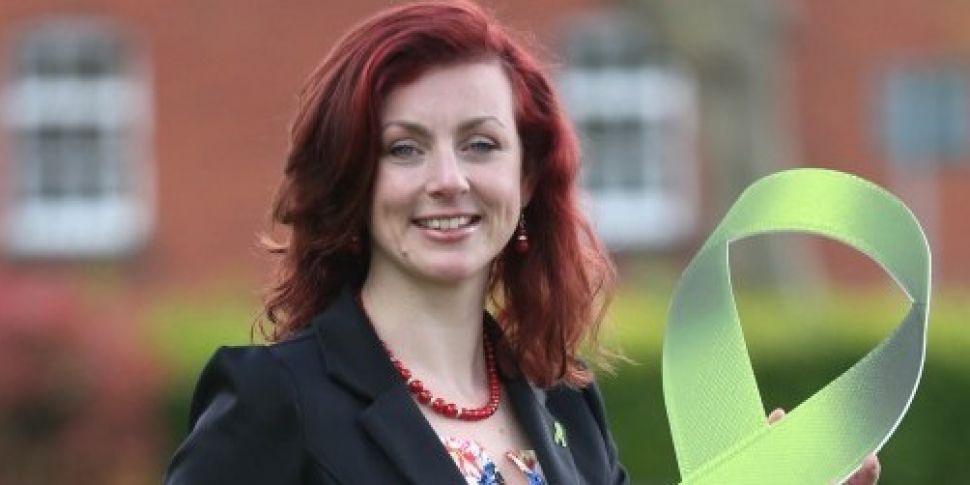Monday marks the beginning of an annual Green Ribbon campaign for mental health.
It comes as a new study finds 46% of people in Ireland under 35 say they would conceal a mental health difficulty from family, friends or colleagues.
The research by See Change is part of their 5th annual Green Ribbon campaign.
This is 12% higher than the average for those aged over 35 years, where 34% of respondents said they would not want to share if they were experiencing a mental health difficulty.
On average, 38% of people in Ireland say they would conceal a mental health problem from family, friends or colleagues.
People under 35 years of age are also more likely to delay seeking help for their mental health, compared to those above 35 years of age, with 16% saying they would fear other people finding out if they sought help.
People aged 65 years and over were least likely to delay help due to stigma, at 8%.
On average 14% of people in Ireland would delay seeking help out of fear of letting others know.
"Let someone know you are there"
Speaking about the research, the CEO of See Change John Saunders said "Stigma is one of the main reasons people experiencing mental health difficulties do not seek help.
"We're asking people across Ireland to play their part this May by wearing the Green Ribbon and being open to conversation about mental health.
"You don't need to be an expert or have all the answers. Sometimes the most helpful thing you can do is let someone know you are there for them."
The Green Ribbon campaign aims to change minds about mental health, by prompting hundreds of events and thousands of conversations all over Ireland during the month of May.
Between now and the end of May 500,000 free ribbons will be sent out to homes, workplaces, schools, colleges and communities across the country.
Barbara's story
Barbara Brennan is a Green Ribbon ambassador and mental health campaigner.
She told Newstalk Breakfast she encountered problems in secondary school.
"It became where I just started dropping out of things - I used to run for my county, and I used to be really good at art, I used to do swimming, I used to do all these different things, and one by one they kind of just stopped.
"I stopped seeing my friends, I stopped doing things and I was just incredibly sad a lot of the time and I couldn't really say why".
"I really tried to look back and say 'what was the trigger?' and I think over time it was just that that sadness was so deep and it was like this cloud that was smothering me from the inside out.
"Have you ever had so many marshmallows and put so many in your mouth that you can't talk anymore? It was nearly like that feeling - that it was kind of exploding from the inside, but smothering you at the same time".
"There was this disconnection in myself that I didn't know how to reconnect with those things".
Barbara says she tried to take her own life at the age of 14, and again as recently as 2008.
"It was something that nobody had the language for, and it was something that only over the last 15 years that we've learned how to talk about it, and how to have those conversations".
"In the same way later in my life, as recently as 2008, that was my latest suicide attempt and that put me on life support... I had lots of time in between to have those conversations and learn about myself - but essentially even understanding lots of things doesn't stop you feeling awful sometimes.
"And sometimes it actually nearly makes it harder when you know the stuff you should be doing and when you know 'this is what happens and this is my experience' and yet you still feel pretty crappy - it's tough.
"I think what happened thereafter is I woke up when I shouldn't have and something changed - and I realised either I have to fix this or I'm going to go back and live the same life that I've lived".
She says: "I think up to that point I had always wanted somebody to fix me - and I never realised that I was able to do it myself. I never realised my responsibility and my capability".
Anyone affected by issues raised in this article can get more information here - or call The Samaritans on 116 123









